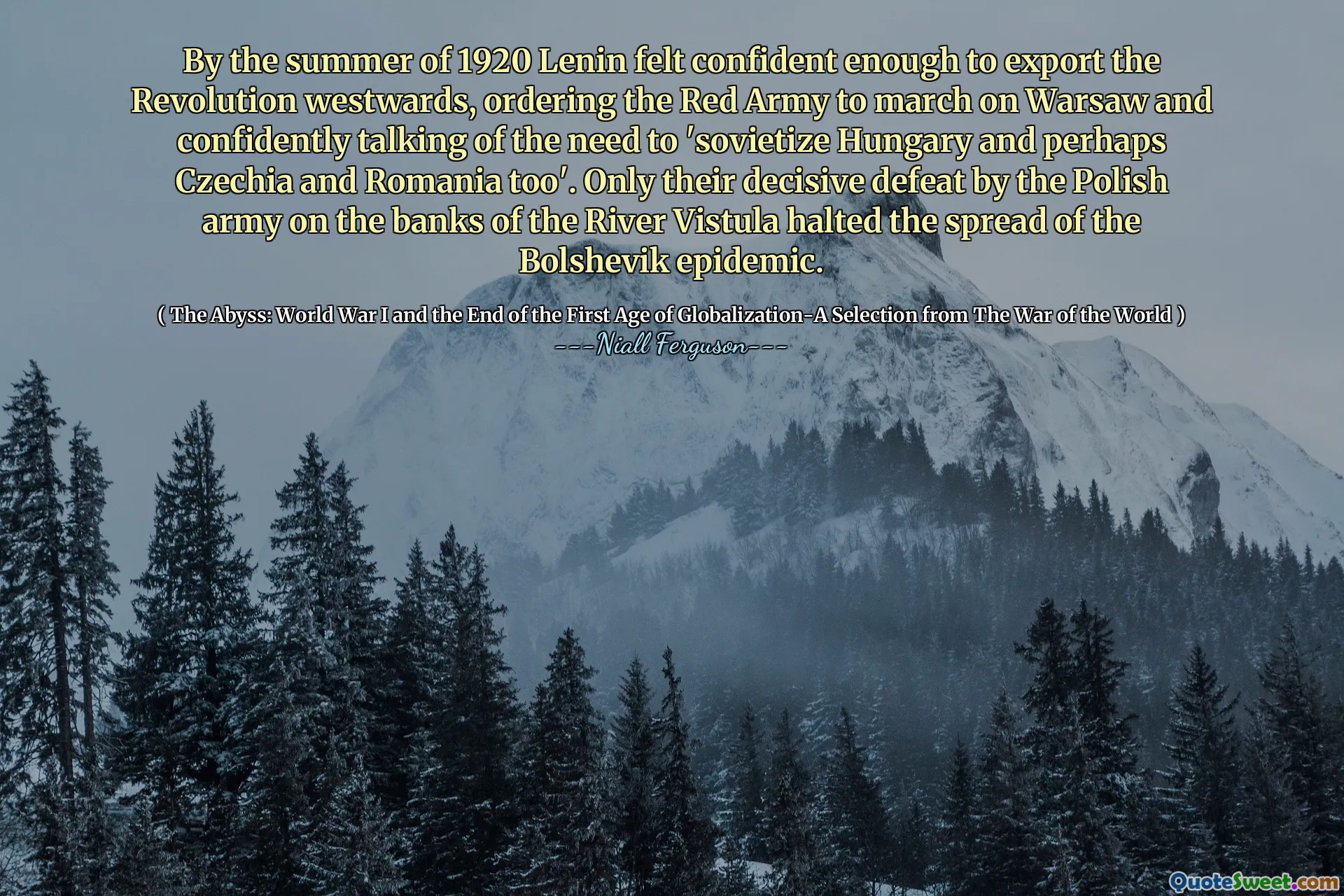
By the summer of 1920 Lenin felt confident enough to export the Revolution westwards, ordering the Red Army to march on Warsaw and confidently talking of the need to 'sovietize Hungary and perhaps Czechia and Romania too'. Only their decisive defeat by the Polish army on the banks of the River Vistula halted the spread of the Bolshevik epidemic.
In the summer of 1920, Lenin was optimistic about the prospects of spreading the Bolshevik Revolution beyond Russia. He commanded the Red Army to advance on Warsaw and engaged in discussions about the potential to 'sovietize' Hungary and countries like Czechia and Romania, reflecting his ambitions for a wider influence in Europe. This aggressive stance showcased Lenin's belief in the success of the revolution and the possibility of installing communist regimes in neighboring nations.
However, the endeavor faced a significant setback when the Polish army decisively defeated the Red Army at the River Vistula. This defeat effectively curtailed the spread of Bolshevism into Western Europe, halting what Lenin envisioned as a burgeoning communist movement across the region. The Polish victory marked a turning point, demonstrating national resistance against the Bolshevik expansion and altering the course of Soviet ambitions during that period.











